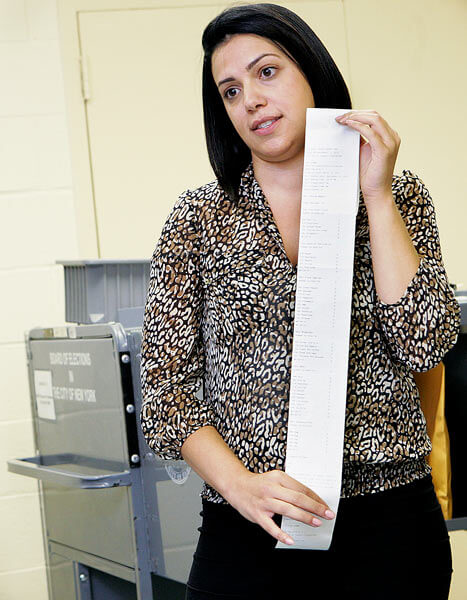By Rich Bockmann
A pair of South Asian community groups last week filed a federal lawsuit against the city Board of Elections for failing to provide voters with Bengali-language ballots as it has been required to do since 2011 under the Voting Rights Act.
A spokeswoman for the board said the ballots will be in place for the Sept. 10 primary for the city’s elections, but the lawsuit claims the community groups had been told that in the past.
“The board has made many promises before. Now we want assurances,” said Glenn Magpantay, democracy program director for the Asian American Legal Defense and Education Fund, which, along with CHHAYA Community Development and a Queens resident, filed the suit in Brooklyn Eastern District Court.
In October 2011, the director of the U.S. Census Bureau determined Queens was covered under Section 203 of the Voting Rights Act, which requires jurisdictions to provide assistance to language-minorities once they reach a certain threshold.
This provision of the civil rights legislation had previously required the city to provide ballots in Spanish, Chinese and Korean, and following the 2010 census it determined Queens had enough South Asians to require ballots. Bengali was chosen as the language.
The BOE, however has not provided Bengali ballots in the four elections since the designation.
“The reason we couldn’t implement the Bengali ballots last year was because, as per our vendor, there were technical issues in getting the scanner and ballot marking device to read the ballots,” said BOE spokeswoman Valerie Vazquez.
The board is planning to use the old lever-style voting machines for the Sept. 10 primary, but Vazquez said the vendor would have been ready with the ballots had the electronic machines been used.
The lawsuit claims the community groups were given verbal assurances the ballots would be ready for the November 2012 general election, but they were never put in place.
Vazquez said the board in 2012 adopted an interim plan that would provide assistance such as interpreters at poll sites until the BOE could have full implementation for the 2013 election cycle.
The groups filing the lawsuit, however, claim there were too few interpreters at polling sites and confused voters waited in lines for Chinese interpreters.
Plaintiffs seek to have the BOE adopt a comprehensive compliance plan that would detail the measures the board has put in place for future elections to make sure it is in compliance.
Reach reporter Rich Bockmann by e-mail at rbockmann@cnglocal.com or by phone at 718-260-4574.

































